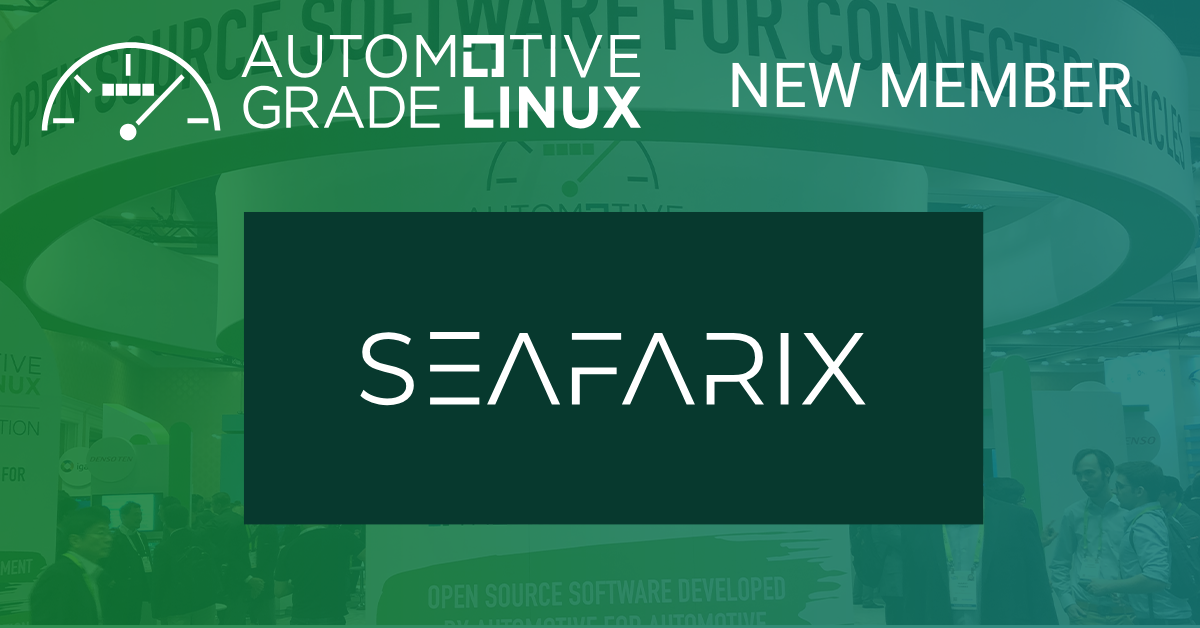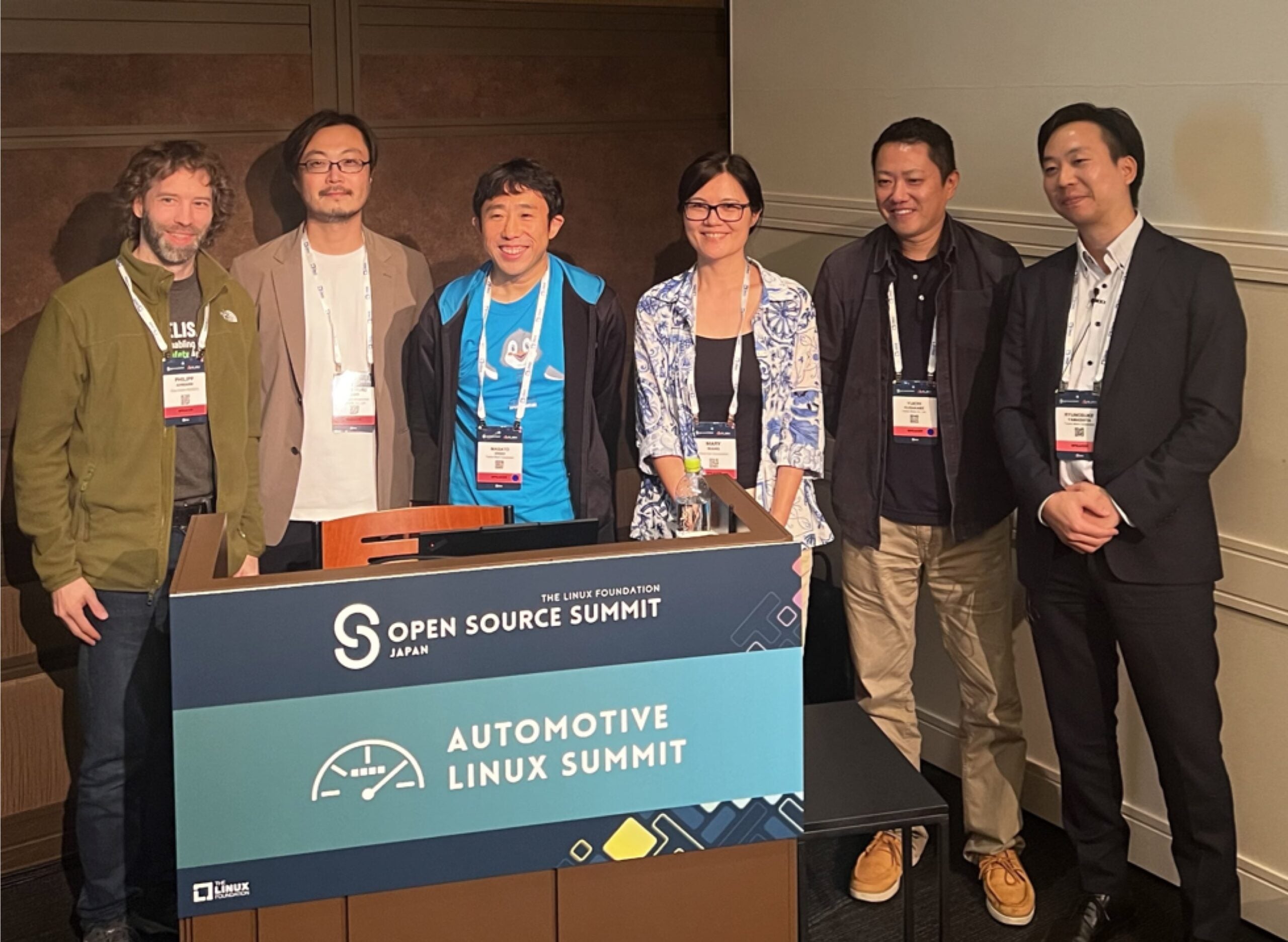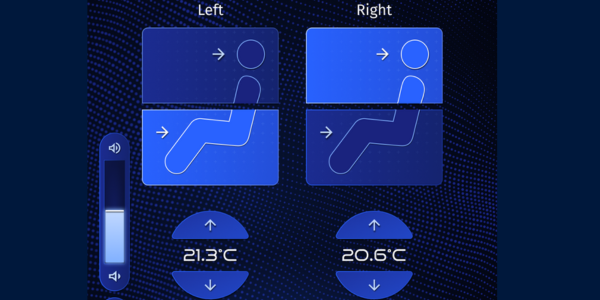AGL Members to Use New Distribution to Deliver State-of-the-Art In-Vehicle Infotainment
San Francisco, January 4, 2016 – Automotive Grade Linux (AGL), a collaborative open source project developing a common, Linux-based software stack for the connected car, today announced a new AGL Unified Code Base (UCB) distribution built specifically for the Automotive industry. This new Linux distribution was built from the ground up to address automotive specific applications and leverages the best software components from AGL and other existing open source projects such as Tizen and GENIVI Alliance.
By customizing the distribution to meet specific automotive requirements, this new AGL UCB distribution is in a unique position to become the de facto standard for the industry, allowing developers and carmakers to leverage a software stack based on Linux for creating in-vehicle software. Automakers and suppliers are able to collaborate directly with AGL’s global community of developers to advance the software for connected car applications.
“The automotive industry needs a standard open operating system and framework to enable automakers and suppliers to quickly bring smart phone-like capabilities to the car,” said Dan Cauchy, General Manager of Automotive at Linux Foundation. “This new distribution integrates the best components from AGL, Tizen, GENIVI and related open source code into a single AGL Unified Code Base, allowing carmakers to leverage a common platform for rapid innovation. The AGL UCB distribution will play a huge role in the adoption of Linux-based systems for all functions in the vehicle.”
Already several members of AGL, including Toyota, Aisin AW, DENSO, Fujitsu Ten, HARMAN, Panasonic, Pioneer and Renesas Electronics are planning to use the AGL Unified Code Base distribution to deliver a modern in-vehicle infotainment and connected car experience for consumers. Jaguar Land Rover, a Linux Foundation board member, also delivers a Linux-based infotainment system in their vehicles.
“The announcement of this new AGL Unified Code Base distribution is the significant first step in creating an open ecosystem based around a common platform that will accelerate rapid innovation of infotainment features,” said Ken-ichi Murata, General Manager of BR Connected Strategy & Planning department of Toyota Motor Corporation. “Toyota plans to support contiguous enhancement of the distribution for future infotainment systems to deliver cutting edge connected car experiences to our customers.”
Although initially focused on In-Vehicle-Infotainment (IVI), the new distribution has been architected to allow different profiles to be created from the same code base to address all applications in the car, such as instrument cluster, heads up display, telematics and connected car. Ideal for deploying “smart car” navigation, communications, safety, security, and infotainment functionality, the AGL UCB distribution is supported by a broad community of participants from the automotive, communications, and semiconductor Industries as well as individual developers.
New AGL Features and Benefits
Based on the Yocto Project, a complete embedded Linux development environment with tools, metadata, and documentation, the new AGL distribution includes:
-
Complete Linux-based distribution based on Yocto Project
-
Common IVI layer that can be shared by multiple projects (AGL, GENIVI, others)
-
Complete open source development infrastructure including Git code repositories, Gerrit code review and Jira bug and issues tracking, all hosted by the Linux Foundation
-
Continuous integration via Jenkins
-
Automated testing infrastructure
-
Westin IVI shell with Wayland IVI extension (from GENIVI)
-
Support for Qt multimedia and QML applications
-
Demo applications for Home Screen, Media Browser, HVAC Control and Display, AM/FM Radio and Navigation
-
First open source MOST device driver developed by Microchip Technology
-
Option for both native and HTML5 applications
Open collaboration within the AGL community means support for multiple architectures and hardware platforms. The AGL distribution initially supports the following platforms, with more to be added in the coming months:
-
Renesas R-CAR M2 PORTER
-
Renesas R-CAR E2 SILK
-
Various Intel boards such as the MinnowBoard MAX
-
QEMU x86
AGL UCB, which is hosted on Linux Foundation servers and open to anyone, is available for download here.
Ford, Jaguar Land Rover, Mazda, Mitsubishi Motors, Nissan, Subaru and Toyota are among the first carmakers to participate in the AGL collaborative project. Other members include ADIT, Aisin AW, Codethink, DENSO, Fujitsu Ten, Konsulko Group, HARMAN, Intel, Mitsubishi Electric, Mentor Graphics, NTT DATA MSE, Panasonic, Pioneer, The Qt Company, Renesas Electronics, Wind River and many others.
AGL Demonstration at CES
At CES 2016, the AGL UCB will be featured as part of the GENIVI CES 2016 Demonstration Showcase in the Trump International Hotel on January 6-7, 2016. Demo applications for navigation, HVAC control, radio, media player and browser, settings and home screen are on display this week.
About Automotive Grade Linux (AGL)
Automotive Grade Linux is a collaborative open source project that aims to accelerate the development and adoption of a fully open software stack for the connected car. Leveraging the power and strength of Linux at its core, AGL is uniting automakers and technology companies to develop a common platform that offers OEMs complete control of the user experience so the industry can rapidly innovate where it counts. The AGL platform is available to all, and anyone can participate in its development. Learn more: http://automotivelinux.org/.
Automotive Grade Linux is a Collaborative Project at The Linux Foundation. Linux Foundation Collaborative Projects are independently funded software projects that harness the power of collaborative development to fuel innovation across industries and ecosystems. www.linuxfoundation.org
About The Linux Foundation
The Linux Foundation is the organization of choice for the world’s top developers and companies to build ecosystems that accelerate open technology development and commercial adoption. Together with the worldwide open source community, it is solving the hardest technology problems by creating the largest shared technology investment in history. Founded in 2000, The Linux Foundation today provides tools, training and events to scale any open source project, which together deliver an economic impact not achievable by any one company. More information can be found atwww.linuxfoundation.org.
Additional Resources
###
Media Inquiries
Kristi Tan
(503)-586-8744
The Linux Foundation




